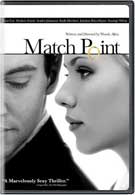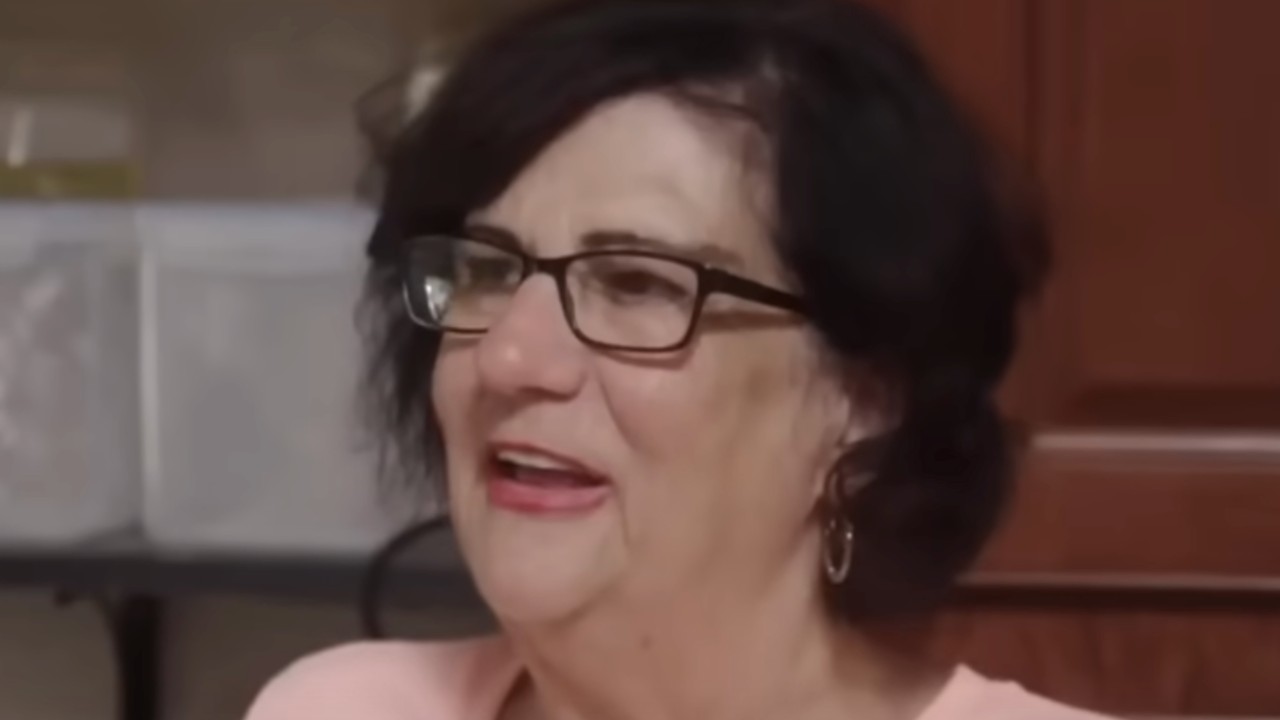New to London, ex-tennis pro Chris Wilton takes a job as a tennis teacher, which leads to his friendship with Tom Hewett, marriage to Chloe Hewett, employment at Alec Hewett’s company, and affair with Tom’s ex-fiancée, Nola Rice. Chris’s needs clash with his desires as he attempts to juggle his wife and girlfriend, while director Woody Allen attempts to juggle adultery clichés and a ill-conceived plot in Match Point. “There are moments in a tennis match where the ball hits the top of the net and, for a split second, remains in mid-air,” Match Point's main protagonist, ex-tennis pro Chris Wilton, says as the film opens. “With a little luck, the ball goes over and you win. Or, maybe it doesn’t, and you lose.” Unfortunately for Woody Allen, he needed more than luck to make this half-hearted noir with an operatic win game, set and match.
The film’s simplistic tale of a man whose needs and desires are in direct conflict is obviously influenced by opera, which simultaneously advances and destroys the plot. It is the love for opera that sparks the friendship between Chris and Tom, whose upper-class English family invites Chris into their home, lives, and opera viewing box. Chris falls for Tom’s sister, Chloe, but desperately desires Tom’s mysterious fiancée Nola. Assuming that Tom and Nola are on their way to the alter, Chris marries Chloe, but not before a romp in the hay with Nola, which kindles the burning affair of passion that continues through Chris’s marriage. Of course, eventually something has to give and Chris, torn by his double life, resorts to extreme measures, and the film forgets that it is a simple tale and tries to be a grandiose opera tragedy.
Perhaps it’s because the characters go to the opera incessantly or various opera songs fill the film’s soundtrack, but in the last 45 minutes the film loses itself in trying to create a tragic conclusion. In the first hour, the film is firmly grounded in reality, but in the aftermath of Chris’s desperate actions, he ends up talking to ghosts and a police detective solves the crime via one of his dreams; at which point the film loses its credibility. Like an amateur filmmaker, Allen abandons the film’s early tone in favor of a melodramatic conclusion. Yet, although this change in tone is clear and jarring, the energy that Allen injects into the conclusion of the film is absent in the first half. The film’s opening monologue about luck is forgotten until 90 minutes into the movie. Despite the themes of chance and luck, all the early events seem premeditated. Ironically, it is only in the latter half of the film, when the story falls apart does the theme of luck come to fruition.
Although the story falters in the end, the dialogue is very well written with an intelligence that only Allen brings to the screen; yet, because of his absence from the film, that intelligence doesn’t come off as whinny or self-loathing, which is refreshing coming from Allen. It is a shame that he couldn’t include that intelligence in the filmmaking.
Despite it’s flaws, the film is entertaining enough with fine performances from Jonathan Rhys Meyers as Chris and Scarlett Johansson, who steps out of her shell of innocence and into the role of the genuinely unlikable Nola Rice. However, given the fact that Allen has brought us the likes of Manhattan and Annie Hall, it is difficult to appreciate this, as well as his other recent works (most notably Curse of the Jade Scorpion and Anything Else). It is admirable that, in his later years, he is trying to break out of his own model. Like Nola, who left her home in boulder, Colo. in search of stardom, Allen left his comfortable New York setting for London and in doing so, he left a part of himself. Being the only American, Nola admits that she cannot fail as an actress for fear of what her friends would say back home. It seems that, perhaps, Allen was thinking the same thing. Regrettably,Match Point perpetuates the idea that Allen is only at the top of his game when the world, or at least New York, revolves around him. This DVD is no exception to the crappy Woody Allen DVD rule. The anamorphic video is presented in its original 1.85 : 1 aspect ratio with a good transfer that is plagued by very obvious edge enhancement. On the other hand, the audio features a rather disappointing Dolby Digital mono soundtrack with an optional French language mono soundtrack and optional English, Spanish and French Subtitles. Although a mono soundtrack would work for other Allen films such as Manhattan, which has a classic atmosphere and a great Gershwin soundtrack, the presentation of a mono sound track here is out of place, as the film is not even close to being classic aesthetically. However, the mono sound is spread throughout the front three speakers, which gives a perceived depth, despite the fact that it isn’t a discrete three channels.
Other than the presentation of the film, you get scene selections and a trailer for the coming-soon-to-DVD Munich. Although one can’t expect much in the way of supplements for an Allen release, this DVD is especially disappointing. Match Point shows that Allen is trying to expand his directorial palette. But, instead of filling the DVD insight into the director’s ideas and features that would give us a better idea of where Allen has been and where he is going, all we have is what is written on the screen.
Joe Hendry Reveals How The WWE Snuck Him Into WrestleMania 41 For Randy Orton Match, And Confirms How Seriously They Take Surprise Appearances
Greg's Mom Seemed Like Another Nightmare 90 Day Fiancê Mother-In-Law, But She Changed My Mind
The Last Of Us Season 2 Episode 3 Live Blog: I'm Talking The Aftermath Of Joel's Tragedy, Ellie's Recovery And More











